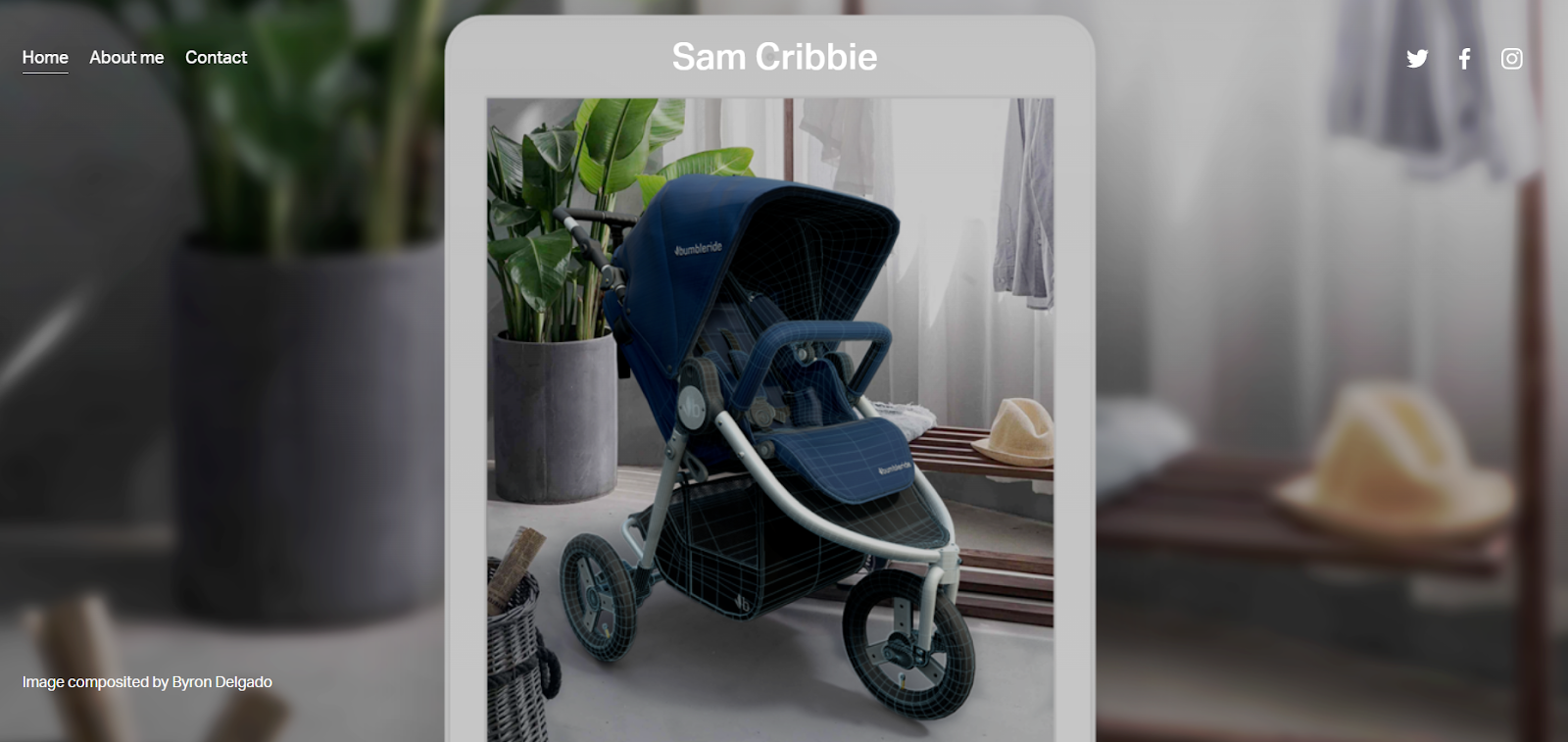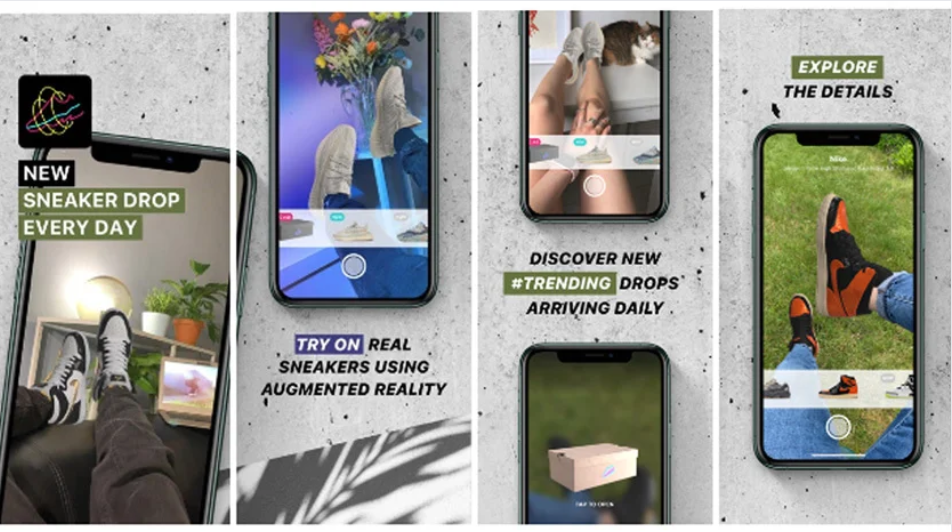Ecommerce companies all around the world are always seeking for new methods to improve their interactions with potential consumers and boost sales.
As we might all know, digital consumer behavior, perception trends and consumer values have changed dramatically over the previous two years, while the epidemic was at its peak.
As a result, implementing cutting-edge 3D technology and augmented reality capabilities is hands down a great way to push your company forward.
But what are these technologies and how might they benefit eCommerce businesses? Let’s take a look at these real case examples in the blog.
#1. Rebecca Minkoff gives you the opportunity to try on a designer item before you buy it.
Since the end of 2019, Rebecca Minkoff, a well-known women's fashion and accessory business, has begun utilizing 3D pictures and augmented reality elements.
Rebecca Minkoff has been promoting early adoption of some of retail's most cutting-edge tech developments for more than a decade, including smart mirrors, self-checkout, and RFID chips in handbags.
Due to technological improvements, the firm can now exhibit its items in an interactive form, allowing buyers to see how the product would appear in real life before purchasing it.
Potential Rebecca Minkoff consumers may see how big their desired fashion item like purse is and if the color suits their taste and style thanks to 3D modeling.

The experience was much better when used on a mobile device. Customers might digitally position the bag in front of them using augmented reality elements.
Suddenly, connecting with a product from afar wasn't only about scrolling through pictures on a website. Rebecca Minkoff managed to create a far more personal experience.
Rebecca Minkoff has achieved impressive achievements by utilizing Shopify's augmented reality technology and 3D models to display and sell their products:
After engaging with an item in 3D, shoppers are 44% more likely to add it to their shopping basket.
After interacting with a product in 3D, customers are 27% more inclined to purchase it.
After engaging with a product in AR, visitors are 66% more likely to make a purchase.
#2. IKEA was one of the first and most successful interactive 3D & AR users.
IKEA was one of the first companies to use 3D and augmented reality technologies in its marketing campaigns.
IKEA released IKEA Place, an augmented reality software, in 2017. It allows users to virtually place true-to-scale 3D models in their homes prior to making a purchase.

Homeowners can examine a whole 3D room layout with the IKEA Place app. Users may then try out different pieces of furniture and color schemes to see how their space will appear in real life.
They may even include windows and doors, and the entire experience will be scaled to their actual space.
IKEA experienced the following outcomes after incorporating the app into their marketing strategy:
The company's internet sales climbed by 43% in 2019,
Its total yearly revenue to $40 billion in the same year
Increased internet sales account for a great portion of this.
#3. Fatboy reaps the benefits of 3D advertising.
Fatboy is a Dutch design firm that is known for its unique beanbags.
Customers are no longer content with photos, according to the corporation, and instead want hands-on experience before making a purchase.
As a result, Fatboy chose to collaborate with CGTrader ARsenal in order to broaden their marketing options.

Fatboy enlisted the help of the CGTrader team to create a 3D digital library for architects and designers to utilize when creating interior designs. Architects and designers would be able to easily integrate Fatboy's goods into their projects as a result of this.
The following are some of the most significant advantages that the brand has enjoyed:
Enhanced consumer interaction;
A chance to highlight the product's distinctiveness (e.g., actual colors, texture, and more);
Greater conversions;
Lower return rates
#4. Bumbleride employs augmented reality to assist parents-to-be in stroller buying.
Bumbleride is an environmentally friendly stroller shop that has begun using 3D modeling in their marketing approach to promote their products.
One of the most commonly asked concerns concerning the size of Bumbleride's goods when folded or stored away, according to Ryan Wilson, the company's chief customer officer.
Customers had a tougher time determining the many locations the dynamic product would need to fit in than they did when evaluating the dimensions of a static sofa.
The challenge was handled via 3D stroller modeling and augmented reality, which eliminated the requirement for text-based measurements.

This is particularly useful for future parents, as it allows them to see how much room the stroller would take up in their houses.
Bumbleride noticed the following outcomes after using 3D models into their e-commerce:
Stroller conversion rates increased by 33%,
Average visitor time spent on the brand's online store increased by 21%.
Read more: The popularity of microservices-based ecommerce!
#5. Nike uses 3D and augmented reality to create new goods and an engaging user experience.
Nike was one of the first global corporations to use 3D technology into their online store.
Nike began experimenting with 3D printing technology in sneaker production in 2013. The test proved to be a success over time, allowing Nike to produce new and inventive goods.
The Nike team was able to test, iterate, and build geometries that were not achievable using standard production methods, allowing them to push the boundaries of innovation quicker.
Nike began using augmented reality for shoe fitting in the fall of 2019.

The brand's software automatically filters suitable shoe sizes by scanning a user's foot and measuring its whole shape, allowing them to choose their preferred designs and colors without worrying about fit.
Nike boosted their conversion rate to 11% by utilizing AR and 3D technology.
Final words
Customers are becoming dissatisfied with seeing the same thing over and over.
Consequently, 3D marketing allows you to develop immersive advertisements that will wow your customers.
This has shown to be a viable approach, especially in these pandemic-plagued times when most of us are confined to our homes.
There's no need to look somewhere else if you're seeking for a high-quality 3D design firm.
All of your craziest 3D marketing and advertising demands and ideas will be supported and enabled. Schedule a free consultation right today!




















